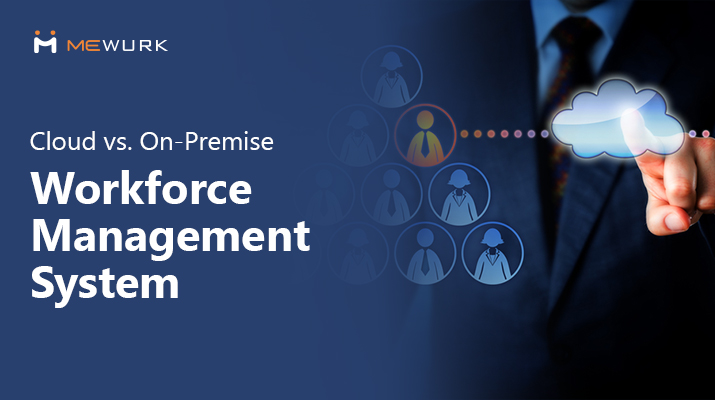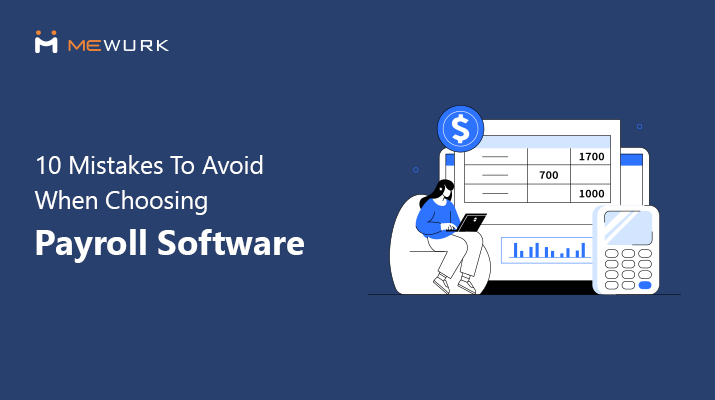
10 Mistakes To Avoid When Choosing Payroll Software
A OnePoll survey carried out on behalf of Paycom, an online payroll software provider based in Oklahoma City, USA, found that 91% of HR professionals agree payroll mistakes can damage employee trust. This statistic highlights a critical reality that payroll goes beyond processing figures and that it is also about upholding reliability and confidence.
Coming to India, the importance of accurate payroll processing is just as vital. With diverse labour laws, varying state regulations, and complex compliance requirements, even a small mistake in payroll processing can lead to penalties and employee dissatisfaction.
Therefore, businesses are essentially required to ensure that their payroll software is equipped to handle all the regulatory complexities - statutory deductions like PF, ESI, and professional tax - while also integrating with other HR software features like attendance and leave management systems.
Choosing the wrong payroll management software can result in a host of problems ranging from regulatory violations, payment inconsistencies, operational inefficiencies, and disengaged employees.
To help you make an informed decision, check out these 10 common mistakes businesses make with payroll software selection—and how you can avoid them to keep your compensation management smooth and disruption-free.
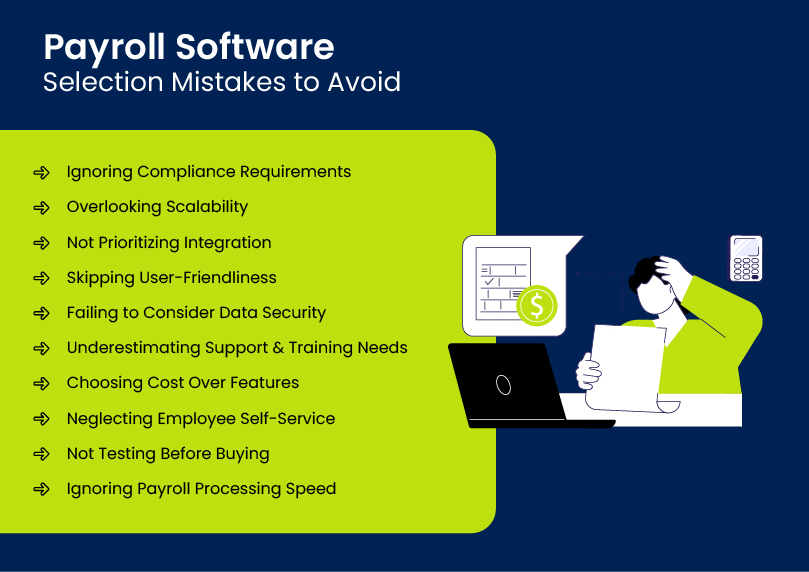
1- Ignoring Compliance Requirements
Have you checked if your online payroll software is compliant with Indian tax laws and labour regulations? If it isn’t, miscalculations and non-compliance can lead to hefty penalties.
For example, a company operating across multiple states in India might face the risk of fines if their payroll system fails to correctly apply varying state-level professional taxes or does not factor in mandatory deductions like Provident Fund (PF) and Employee State Insurance (ESI).
Businesses employing contractual or gig workers must also ensure compliance with labour laws such as the Code on Wages and state-specific Shops and Establishments Acts to avoid legal issues.
2- Overlooking Payroll Software Scalability
Choosing payroll management software that can't grow with your business may require frequent upgrades or migrations as you scale.
Consider a startup that initially needs to process payroll only for 15 employees but rapidly expands to 150 within two years. If they selected a system with user limitations or tier-based pricing that jumps dramatically, they might need to undertake a costly and disruptive migration to a new platform during a critical growth phase, which can potentially cause errors and payroll delays.
Hence, choosing a scalable and flexible payroll software for small businesses is crucial.
3- Not Prioritising Integration
While payroll management is an independent HR task, it is not entirely independent in the broader workforce ecosystem. A payroll system that doesn't integrate with your HR, attendance, and accounting tools can create inefficiencies and errors.
Take, for instance, a restaurant chain business. They have employees working in shifts, and their payment is processed based on the number of hours worked, with additional pay for extra hours. If their time-tracking system is not connected to the payroll software, managers may spend hours manually tallying attendance records and payroll data between systems every pay period.
What else do you need to waste the valuable time of your workforce? But is time wastage the only concern? What about the likelihood of payroll discrepancies that lead to incorrect paychecks?
4- Skipping User-Friendliness
Is your HR payroll software too complicated to use? Does it slow down or generate errors when you process payroll? Does it force you to navigate through multiple confusing screens just to process a simple bonus payment?
If you answered yes, then user-friendliness might not have been a priority for you when you bought your payroll management software. Today, an unintuitive user experience is a major disadvantage for any workforce management tool. Payroll software for small businesses should neither be complicated nor confusing.
A complicated interface can lead to misclassified wages, incorrect tax deductions, or even missed withholdings. When you have these issues, correcting them will take up your valuable time and add unnecessary costs to your organisation's operations. Should payroll management really be this hard?
5- Failing to Consider Data Security in Payroll Software
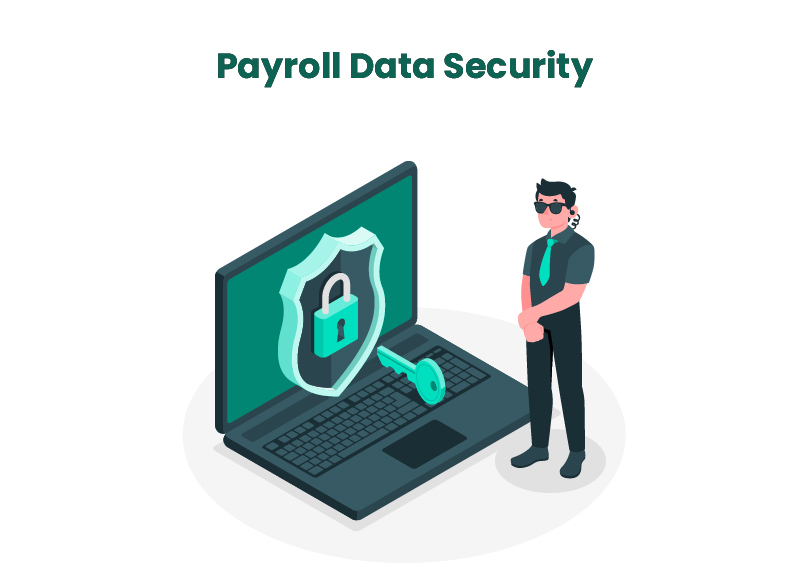
Payroll data is highly sensitive. Unless your system is secure and properly encrypted, you risk exposing employee information. Many organisations that rely on cheap online payroll software without adequate security measures have suffered data breaches and legal troubles. Due to their poor choices, they faced vulnerabilities that exposed employees' social security numbers, banking details, and personal information.
Beyond financial losses, such serious breaches often result in identity theft and fraud, putting affected employees at significant risk. Once these incidents become public, the company's reputation takes a hit, and hiring new talent becomes a challenge. After all, who would want to join an organisation that fails to protect its employees’ data?
6- Underestimating Support and Training Needs
Limited customer support in payroll software can create unnecessary delays during critical moments. Imagine that you are approaching a crucial payroll deadline and suddenly encounter an unfamiliar error message. If your payroll provider has limited support hours or slow response times, you might miss the deadline. As a result, your employees won’t receive their paychecks on time.
In India, where the majority of employees live paycheck to paycheck, a delay like this can have severe financial consequences.
7- Choosing Cost Over Features
Opting for the cheapest HR payroll software without considering the essential features may cost more in the long run. This often happens with small business owners who, in the initial stage, tend to prefer very basic payroll systems to save money, only to discover it can't handle their specific needs like tax compliance, overtime calculations, or multi-location payroll.
In hindsight, they realise their mistake. For a quick workaround, they will complicate the process by relying on spreadsheets, manual calculations, and additional software. Ultimately, it costs them more in staff time and potential errors than a slightly more expensive but comprehensive payroll software for small businesses.
8- Neglecting Employee Self-Service
Employees should have easy access to payslips, tax forms, and payroll details. If your company has remote workers across different time zones, they would greatly benefit from the self-service capabilities of HR payroll software.
With a dedicated employee portal, they can update banking details, download tax documents, and track their salary breakdown without depending on HR. Without such capabilities, your HR teams would end up spending too much time addressing repetitive administrative requests.
9- Not Testing Payroll Software Before Buying
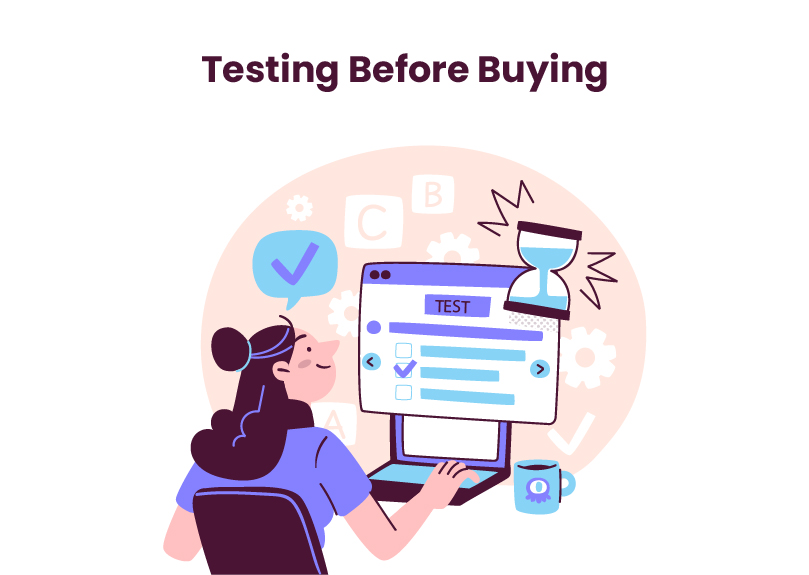
These days, no payroll software companies force users into an upfront commitment. Users can enjoy a free trial for a certain period and make the purchase only if they are completely satisfied with its capabilities.
Skipping free trials or demos, thus, is a risky gamble. You won’t know if it will meet your needs. Let’s assume that you are a healthcare provider and you purchased an online payroll software based solely on the vendor's marketing materials. After a few weeks of implementation training and all the trouble, you discover that it doesn't adequately handle pay discrepancies arising from shift differentials or properly calculate overtime for your 24/7 operation.
Through a trial period, you could have identified these critical limitations, raised them with the provider, and checked for alternatives. Now that you have already made the payment and completed the training, switching to a better system is all the more complicated.
10- Ignoring Payroll Software Processing Speed
Delayed payroll due to slow software can cause dissatisfaction among employees. Think of a seasonal business that needs to process hundreds of temporary workers' final paychecks at season's end. If their payroll software requires 48 hours to process large batches, they might miss regulatory deadlines for final payments.
Slow processing also limits flexibility for handling urgent off-cycle payments when employees face financial emergencies.
Wrapping Up
Choosing the right payroll software is one of the smartest steps you can take toward empowering your business to grow. By steering clear of these ten common mistakes, you are setting yourself up for success by ensuring smoother payroll operations and avoiding costly errors.
Remember, the most effective payroll software for small businesses is one that meets your business’s specific needs while providing the flexibility to grow alongside you. We hope this blog helped you figure it out. Tell us what you think or share your story in the comments!
If you are in search of affordable, scalable, and seamlessly integrated HR payroll software for your business, Mewurk is an excellent option. Contact us today to explore how it can benefit you!
Most Popular Post

Why Accurate Attendance and Leave Management Matters for Business Growth?
Read More →Why Accurate Attendance and Leave Management Matters for Business Growth?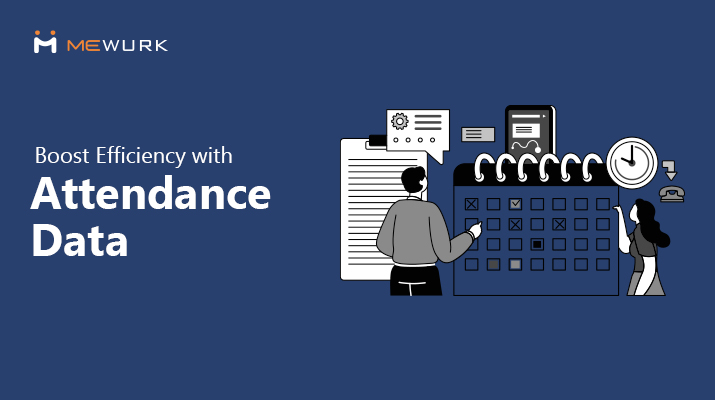
How To Leverage Attendance Data For Better Workforce Management?
Read More →How To Leverage Attendance Data For Better Workforce Management?